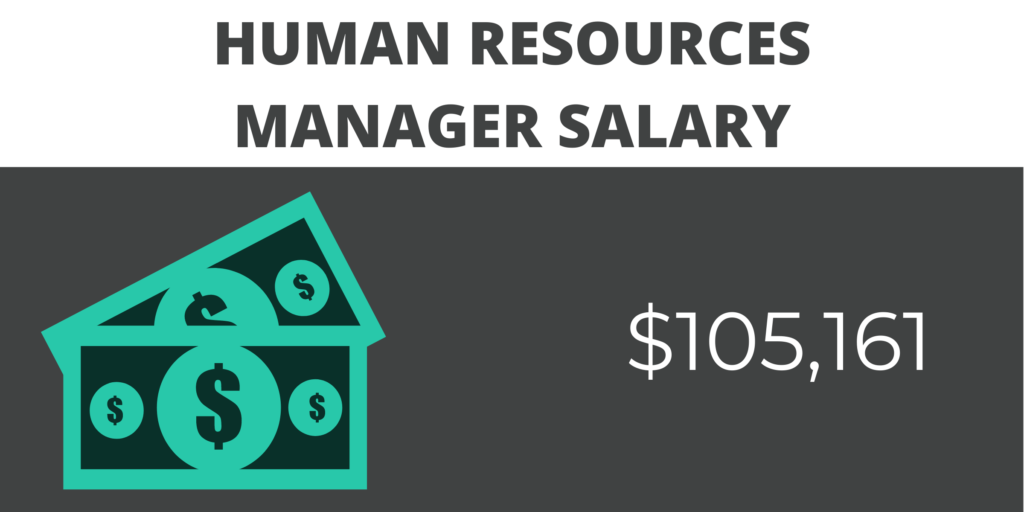If there’s one skill needed in every single organization, it’s leadership. And for certain individuals, the best way to learn and advance in their leadership skills is to obtain a degree. Luckily, leadership is built into the curricula of many business and management programs. And you can gain some education in leadership at degree levels from the associates level through the doctoral levels.
In this guide, we’ll look at a range of topics related to leadership degrees. Namely:
- What is a leadership degree?
- Can I Gain a Leadership Degree Online?
- What Jobs Can I Get With a Leadership Degree?
- Alternatives To Leadership Degrees
Here are GreatBusinessSchools, we’ve covered a wide range of business degrees and careers. Not seeing what you’re looking for in this guide? Check out our related content below:
- The 20 Best Online Associates in Management
- The 10 Best Online Bachelor’s In Management
- 10 Best Online Bachelor’s in Supply Chain Management
- The 10 Best Online Master’s in Health Care Management
- The 10 Best Online Master’s in Non-Profit Management
- The 10 Best Supply Chain Management MBAs
What is a leadership degree?
Leadership degrees fall into two categories, degrees related to leading an organization, team, or project, and degrees specifically about the art of leadership. The first category mentioned is much more common, and often comes in the form of an “administration” or management degree. These degrees are available at the associates through doctoral levels, and will be a great deal of what we discuss in this guide.

The second form of degree is a degree specifically about leadership. Typically these degrees are master’s level and focused on one individual field. For example, a master’s degree in health care leadership, a degree in nursing leadership, or a degree in technology leadership.
Below we’ll work through leadership related degrees starting at the associates degree level and working through the doctoral level.
At the associates level, degrees with leadership in the title are rare. However, individuals are likely to find leadership courses if they pursue an associates in management or business administration degree. Associates degrees are some of the best “bang for your buck” degree types, as they are often much more affordable than the first two years of a bachelor’s degree (some community college districts are even free). Additionally, many associates degree programs provide transfer agreements allowing automatic entry into select bachelor’s programs upon graduation.
At the bachelor’s level, students will occasionally find degrees with leadership in the title. Typically leadership will be paired with a discipline, such as health care or information technology leadership. These degrees typically entail roughly half of major courses on the topic one wants to enter a leadership role in as well as a handful of leadership, management, and courses on change. One particularly leadership focused degree at the bachelor’s level is a bachelor’s in entrepreneurship. For many organizations, a bachelor’s degree is required for entry level work from which one could work their way up into managerial or leadership positions. With this said, few bachelor’s degrees will immediately qualify one for a managerial role.

At the master’s level there are some degrees specifically linked to leadership. Master’s in organizational change and leadership provide graduates with a framework through which they can plot a new direction for an organization and organize people behind that vision. Additionally, many master’s in business administration degrees also provide leadership specializations. Within actual leaders within business and governmental organizations, master’s in business administration is one of the most well recognized degrees.
Finally, at the doctoral level individuals can assume leadership positions by obtaining a Ph.D. in whatever field you would like to work in. This typically prepares one to at least be a thought leader, or perhaps a technical leader in whatever field one is pursuing. For those wishing to focus on the skill of leadership itself, doctoral degrees in business administration and organizational change can both lead to many opportunities in leadership.
Here are GreatBusinessSchools, we’ve covered a wide range of business degrees and careers. Not seeing what you’re looking for in this guide? Check out our related content below:
- The 20 Best Online Associates in Management
- The 10 Best Online Bachelor’s In Management
- 10 Best Online Bachelor’s in Supply Chain Management
- The 10 Best Online Master’s in Health Care Management
- The 10 Best Online Master’s in Non-Profit Management
- The 10 Best Supply Chain Management MBAs
Can I Gain a Leadership Degree Online?

Two levels of leadership degrees are readily available online, associates degrees in fields related to leadership,and master’s in business administration degrees. Master’s in business administration were some of the first degrees to pioneer online learning. And many of these programs have long been built for professionals seeking to gain a degree while working full time. This means that there are definitely master’s-level leadership degrees that are flexible enough to pursue at a distance and while working.
An additional reason for seeking an online leadership degree is that many individuals seeking to join the ranks of leadership within an organization have already worked for some time. These individuals may want a particularly flexible degree.
While many, many students have successfully obtained their education online, it’s worth noting that there are definitely some trade offs between traditional and online education. Particularly in a discipline like leadership that deals with personal interactions, an online degree may or may not give you the full academic “experience.” If you’re pursuing a degree built around discussion, debate, or presentation of materials, in person education can be the best preparation. With this said, a vast majority of business courses are offered online by some universities and help to lead students to quality outcomes.
Here are GreatBusinessSchools, we’ve covered a wide range of business degrees and careers. Not seeing what you’re looking for in this guide? Check out our related content below:
- The 20 Best Online Associates in Management
- The 10 Best Online Bachelor’s In Management
- 10 Best Online Bachelor’s in Supply Chain Management
- The 10 Best Online Master’s in Health Care Management
- The 10 Best Online Master’s in Non-Profit Management
- The 10 Best Supply Chain Management MBAs
What Jobs Can I Get With a Leadership Degree?
Every organization– whether private, nonprofit, or public–has leadership figures. Many of these individuals have obtained additional education related to leadership. Whether this is an advanced degree in their field, a more general degree like a master’s in business administration, or a leadership-specific degree.

Because leadership is such a broad term, it’s hard to narrow down the range of positions that can hold some level of leadership. But we’ll look at some of the most common positions that hold some level of leadership within many organizations.
Project managers are tactical leaders who manage small teams. Typically these individuals help to manage teams of between 3 and 10 individuals tasked with a specific project at a time. There are many detailed project management frameworks that provide some science to the best ways to manage projects. Individuals can spend years learning the ins and outs and becoming masters of one of these frameworks (like Kanban, Scrum, or others). Project managers are employed in private, public, and nonprofit settings, but are most often seen in larger organizations that may have many projects being worked on at any one time.
The average salary for project managers varies depending on the industry one is in, though is often more than $100,000 a year.
Program managers work at a more strategic level than project managers. These individuals are typically employed in larger organizations public or private. Programs are often clusters of a number of individual projects. As such, program managers may be the direct supervisor for a range of project managers. These individuals do play a larger role in leadership of an organization, often securing funding for a range of projects by negotiating with other program managers and executives within an organization. These individuals will need to sell their vision of how their cluster of projects benefit a larger organization.
The average salary for project managers varies depending on the industry one is in, though is often more than $136,000 a year.

Chief Executive Officers are obviously the pinnacle of leadership within an organization. They must — at the end of the day — bear the burden of plotting the course of an organization, of inspiring workers and helping to instill a given culture within an organization. If you are presently a CEO or aspire to be one, leadership should be one of your most central learnings. While no degree can make you into a CEO, individuals who work their way up in organizations or with a great deal of managerial experience may one day see the opportunity to lead an organization. Alternatively, for the entrepreneurially-minded, individuals can start their own organizations with themselves at the helm.
While CEO pay varies from $1 (with stock options) to hundreds of millions of a dollars a year, the average pay for CEOs of all size companies averages out to be around $600,000 a year.
Chief Culture Officers occupy a unique position that requires a great deal of perception, vision, and leadership. They are tasked with tracking and improving something that is at once palpable but also abstract: culture. This could involve pushing programs that enable workers to take time off when they need it, or to voice opinions or try experiments (even if they don’t work). This could involve pushing agendas of radical cooperation. Whatever the change that needs to be made within the culture of an organization, this is definitely a leadership-heavy role.
The average pay for chief culture officers is presently around $85,000 a year.
Chief Finance Officer is a role present in private and some public organizations that needs to provide vision and leadership based on the financial opportunities of a firm. While this individual will need in-depth knowledge of taxation, regulations, mergers and acquisitions, and corporate structure, leadership is also a great deal of what they must do. In many organizations the CFO may be the only team member short of the CEO thinking about finance. And so the ability to advocate for your own point of view and bring coworkers around to your objectives is tantamount.
The average salary of chief financial officers can vary widely but is presently over $300,000.
Executive coaches are individuals who pass on their own experience and talents — particularly at leadership or deep thinking — to other executives. These individuals may have been executives themselves at one point, or may just have a reputation for studying issues that leadership faces. An advanced degree in leadership as well as some credibility in instruction or consulting may be able to get you into this role.
The average salary of executive coaches is presently $100,000.
Chief Diversity Officers are tasked with the challenging task of ensuring organizations are fair and equitable. These individuals may help to ensure practices are in place to ensure that historically underrepresented groups are able to join and flourish in an organization. These individuals are often liaisons between human resources departments and “C-level” management.
The average salary for chief diversity officers is presently $180,000.

Head of communications show leadership through positioning of a brand or organization. This may take the form of responding to crises or building a positive image over time. These individuals may be in the public “limelight” or help to direct those that are for the brand. While no advanced degree is necessary required for a role like this, many individuals who advance all the way up through the ranks of communication will likely gain at least a master’s in communications, marketing, or a related discipline.
The average salary for head of communications or commensurate roles is presently $145,000.
Product managers are tasked with the development or improvement of a single product. These individuals try to facilitate feedback from users or potential users as well as work in an iterative fashion, improving products over time. These individuals commonly work in between top leadership and more technical individuals that actually create a product. If you think of all of the stand out products you know, these are all examples of exemplary leadership within a product management role.
The average salary for product managers varies on industry but is presently $109,000.
Brand managers are similar to product managers, but in charge of a selection of products formed into a brand. Another difference between a product and brand manager is that brand managers are typically brought on after a brand has been established (aka, once the brand already has several products). This means there is less of a focus on “building” a selection of products, and rather a focus on maintaining the quality of the brand as a whole.
The average salary for brand managers is presently $90,000.
Here are GreatBusinessSchools, we’ve covered a wide range of business degrees and careers. Not seeing what you’re looking for in this guide? Check out our related content below:
- The 20 Best Online Associates in Management
- The 10 Best Online Bachelor’s In Management
- 10 Best Online Bachelor’s in Supply Chain Management
- The 10 Best Online Master’s in Health Care Management
- The 10 Best Online Master’s in Non-Profit Management
- The 10 Best Supply Chain Management MBAs
Alternatives To Leadership Degrees

As we’ve mentioned throughout this guide, there many routes to learn leadership. Typically individuals in leadership positions within private and public organizations have a great deal of experience within similar organizations. This means it’s unlikely to jump directly into leadership even with a degree in it.
With this said, many individuals learn valuable lessons about leadership by taking a degree that prepares them for a different career, and has a minor focus on leadership. For example, one can become a leader within any silo of an organization. A degree slightly more general than leadership such as a business administration degree can give you some knowledge of leadership best practices as well as versatile business knowledge to work your way up in many roles.
A second group of those seeking leadership degrees are already in leadership positions. These individuals may simply want to learn more to increase their leadership skill sets. For these individuals, who have already proven their knowledge and expertise in some other subdiscipline, a degree directly in leadership may be a great choice.
For individuals seeking a degree that teaches some leadership skills, but primarily focuses on another subject matter, the following degrees may be a good choice:
- Management Degrees
- Strategic Communications Degrees
- Finance Degrees
- Human Resources Degrees
- Business Administration Degrees
Here are GreatBusinessSchools, we’ve covered a wide range of business degrees and careers. Not seeing what you’re looking for in this guide? Check out our related content below:
- The 20 Best Online Associates in Management
- The 10 Best Online Bachelor’s In Management
- 10 Best Online Bachelor’s in Supply Chain Management
- The 10 Best Online Master’s in Health Care Management
- The 10 Best Online Master’s in Non-Profit Management
- The 10 Best Supply Chain Management MBAs
Carrie Morris
Author
Warren Dahl
Editor-in-Chief

